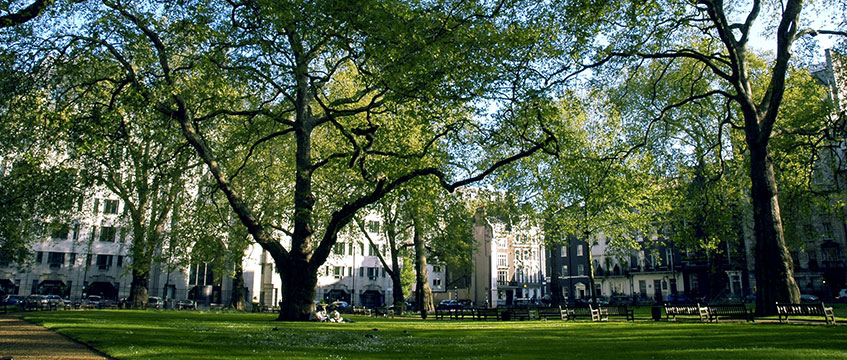The Lands Tribunal has granted permission for a modification of a lease covenant that will allow a new private members’ club to open in London’s Berkeley Square, right next door to the new location of the famous venue Annabel’s.
The tribunal found in favour of Berkeley Square Investments (BSI), owned by property tycoon Simon Halabi, allowing its application under section 84 of the Law of Property Act 1925 to modify the user clause in the lease of 45 Berkeley Square, which restricted use of the premises to that of an office, to allow use as a private members’ club.
BSI has already secured planning consent for the change of use, and the proposed club would include three restaurants, eight bars and a private dining room, together with accommodation.
The application had been opposed by the freeholder of the Berkeley Square Estate, Berkeley Square Holdings (BSH), which raised estate management concerns.
BSH argued, among other things, that having three private members’ clubs in a row on the west side of Berkeley Square risks the location becoming synonymous with that type of use, increases the risk of disruption for residents, and represents the “thin end of the wedge”, opening the way for similar applications in respect of other premises. It also claimed that the opening of a private members’ club adjacent to Annabel’s would introduce a competitor on its doorstep, potentially diminishing the profitability of Annabel’s and thereby reducing its turnover rent.
However, the tribunal found that it was not convinced by the submissions as to the effect of modification of this restriction on the estate as a whole.
It said: “To an outsider, it is difficult to identify the Estate. It is in effect a portfolio of diverse properties whose one common characteristic is their location within a relatively close geographic area. In truth, the Estate defines itself not by any physical demarcation or by any commonality of design but by the fact that its component properties have a common owner. We do not for a moment question the respondent company’s motives in curating and promoting the area of Mayfair for the benefit of the local community (not simply those who inhabit or occupy the respondent’s own properties), but ultimately the principal beneficiary of the respondent’s efforts in this regard is the company itself.
“It follows that the respondent has always had an uphill task to persuade the tribunal that there is any real practical benefit in enforcing the restriction to office use in a lease which does not expire until 2070. Examining, as we have done, each of the arguments put forward by the respondent, and analysing the evidence that has been adduced, we have taken the view that any benefit there may be is of nebulous value or advantage. Looking at the matter in the round, and adopting a pragmatic approach, we are not persuaded, on the evidence, that any of the respondent’s heads of objection have sufficient merit to demonstrate that the practical benefit which it holds by impeding the proposed user is one of substantial advantage.”
Victoria Dacie-Lombardo, a managing associate in the property litigation team at Mishcon de Reya, which acted for the successful applicant, said: “While relatively frequently invoked in the freehold arena, leasehold applications, particularly those relating to the relaxation of user covenants (as in this case), are much less common, and the result is likely to be of interest to landlords and tenants alike.”
To send feedback, e-mail jess.harrold@egi.co.uk or tweet @estatesgazette








